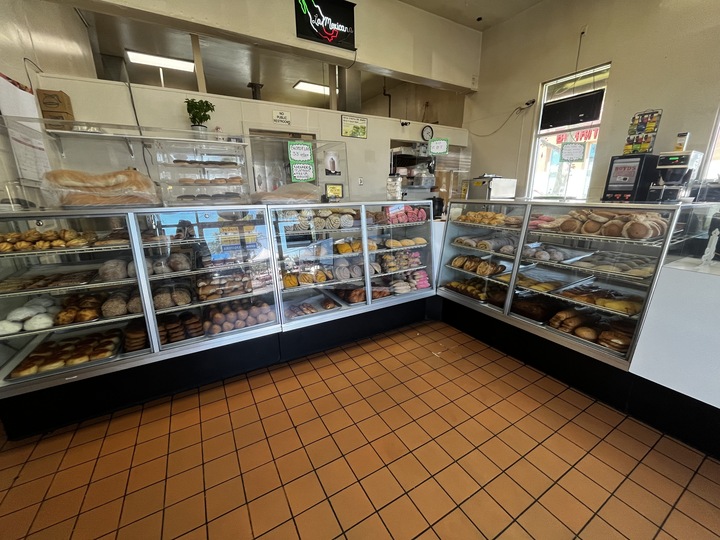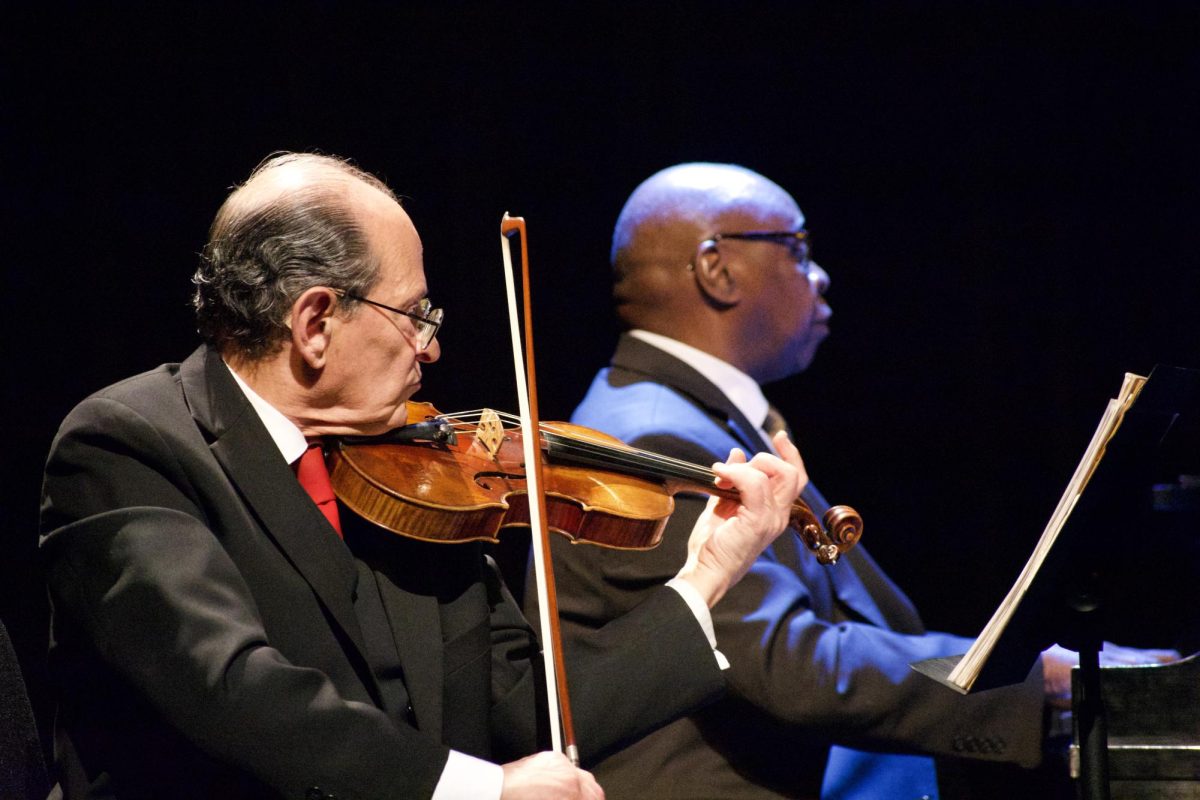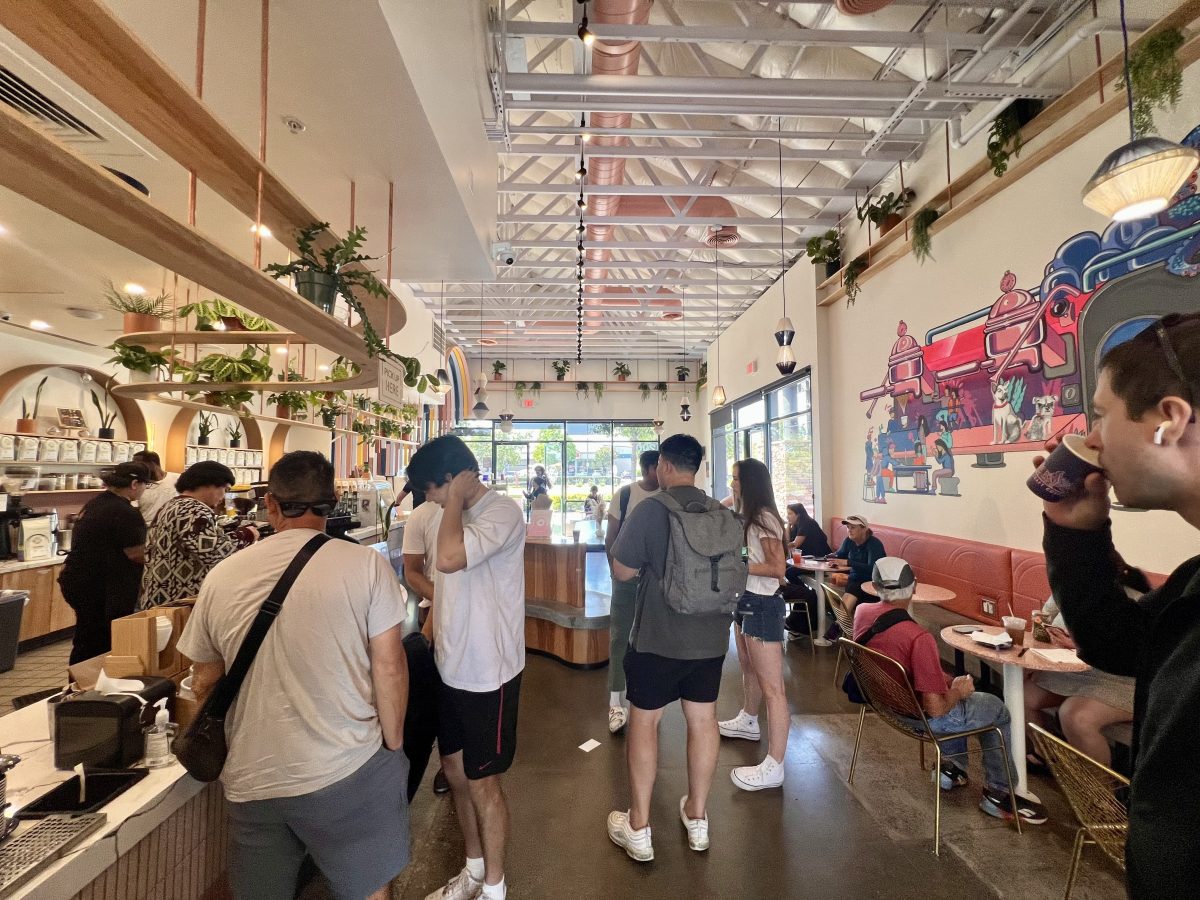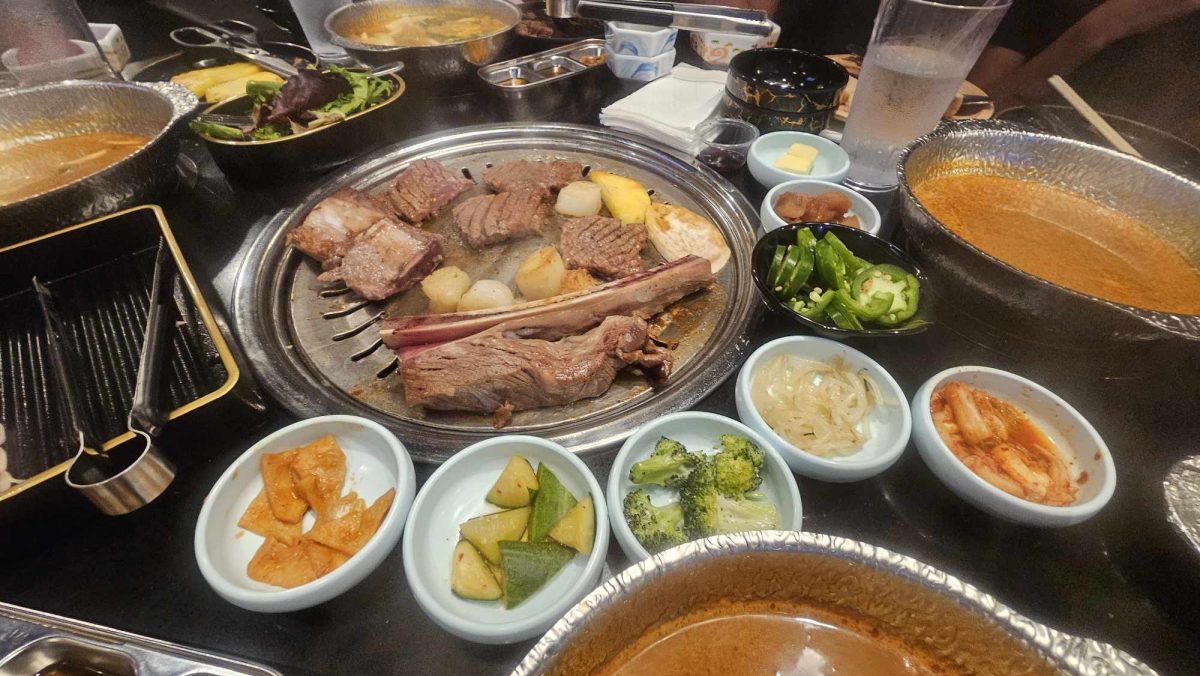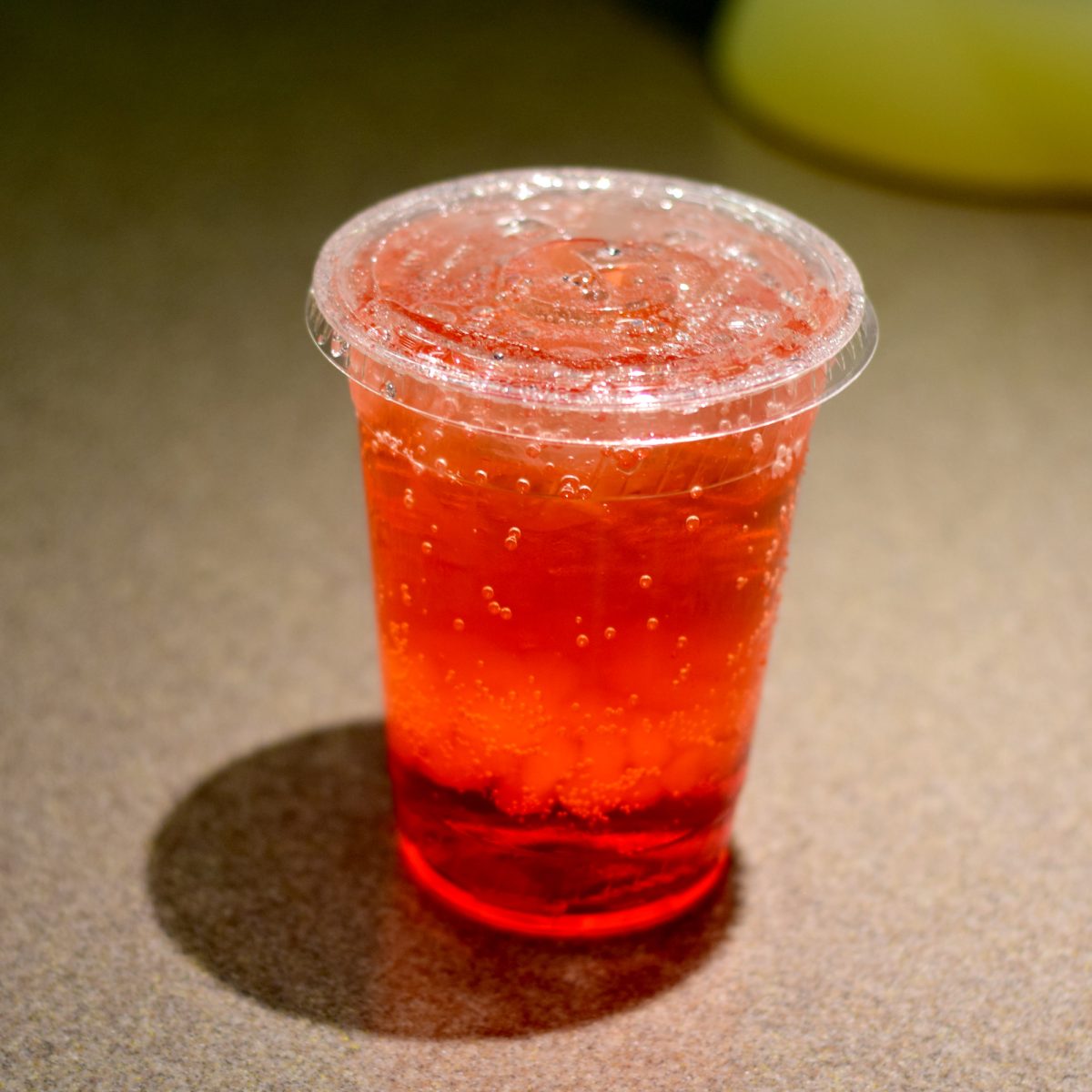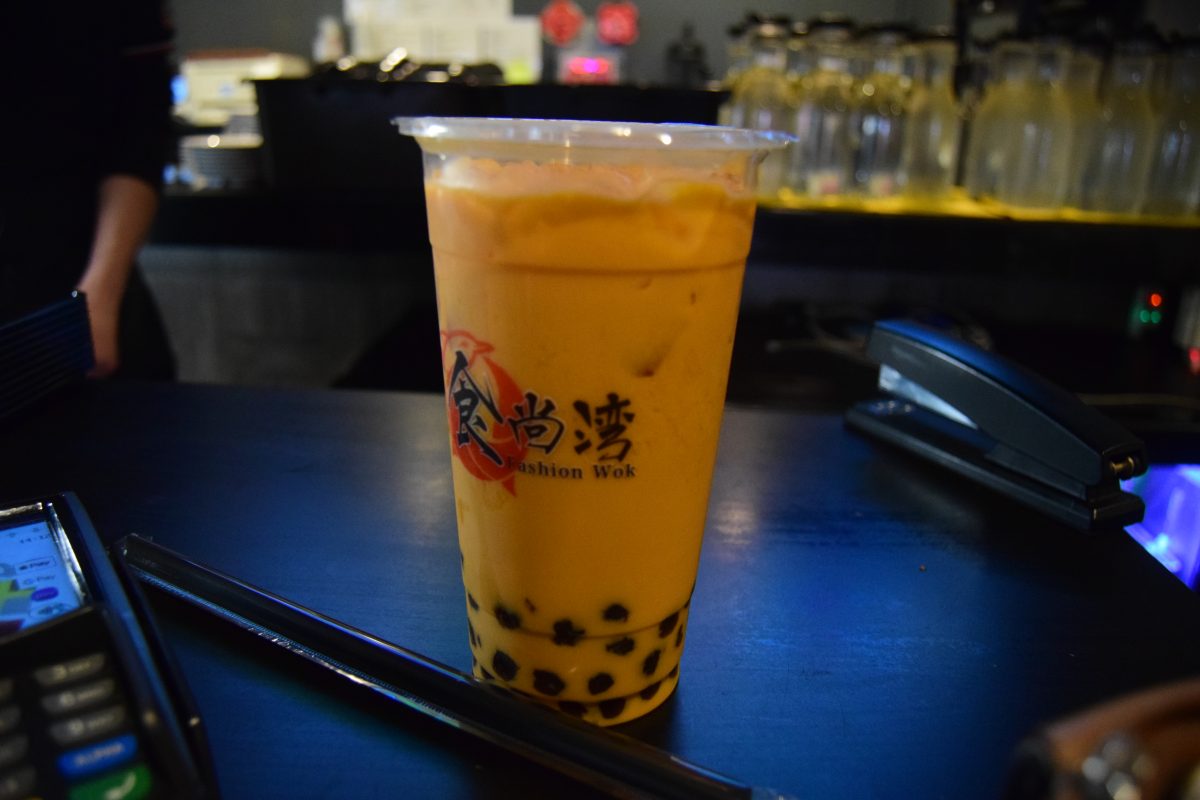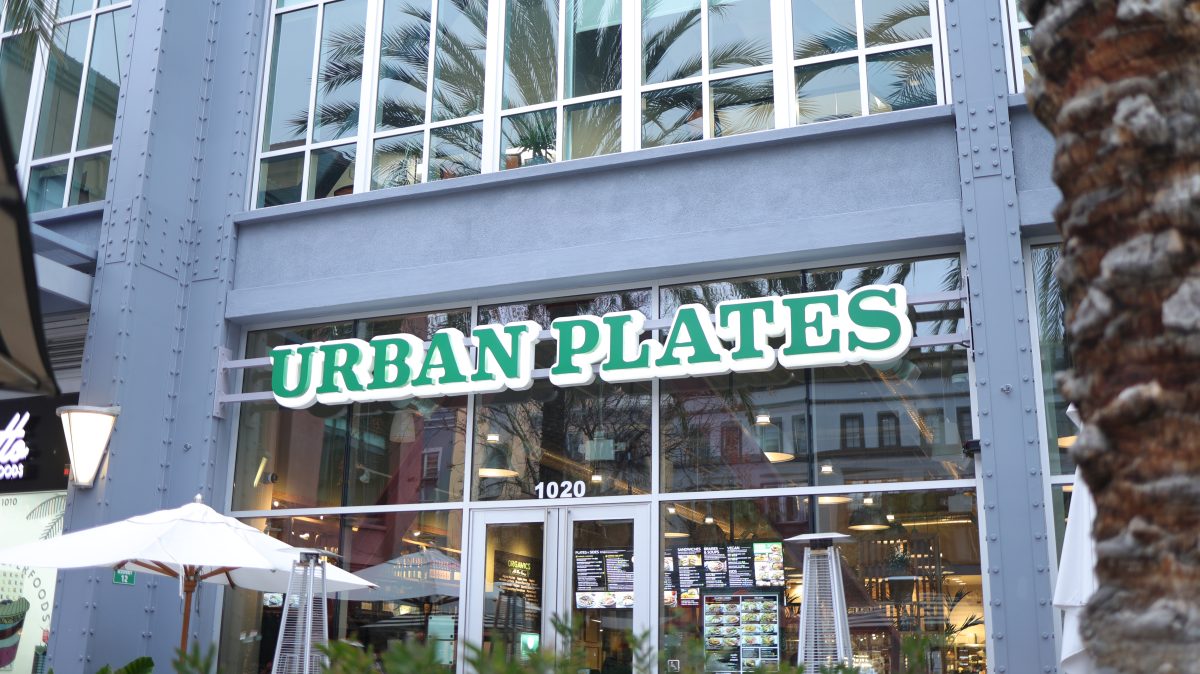La Mexicana Bakery’s warm lights can be seen from the street at 9 p.m. every night. I like to think it’s because the San Jose bakery understands that Mexican hospitality is sharing late night pan dulce (sweet bread) and conversation over a mantled dinner table with family and unexpected visitors.
The bakery usually has a line of four to five patrons during rush hours from 5 p.m. to 7 p.m. With no indoor or outdoor seating, people walk out of the glass double-doors with white paper bags, bulky with fresh bread priced from $1 to $2.50 a piece.
The white wall behind the bread displays is mostly barren except for giant silver coffee machines and a five-gallon thermos that sits on a long counter. On top of the two-long, four-feet-tall bread displays angled adjacently are thick, clear plastic dividers.
Three or four ladies handle rush hour service with a quick “Who’s next,” in Spanish. Two old school cash registers list the price of every purchase on a small customer facing screen in bright green calculator-style font.
If you’re not paying in cash, you’re asked to move to the far left end of the bread display doubling as a counter. A separate terminal is used for the options of chip, swipe and contactless payment at no extra charge. The bakery also accepts EBT (food stamps).
La Mexicana Bakery has nearly 50 types of fresh breads, mostly Mexican style. The most popular, like in most Mexican bakeries, is the concha for $1.30, a circular puffy bread with a crumbly sugar topping that decorates the bread like the markings on a baguette.
Three flavors of the concha are distinguished by the color of the topping; white vanilla, brown chocolate and pink strawberry. The concha was a bit too airy instead of soft, making it difficult to swallow without a sip of coffee or milk.
The breads are not labeled, as pastries usually are in some bakeries, but that is common for Mexican bakeries. I suggest doing research on the varieties of Mexican pan dulce before shopping.
The empanada de camote for $1.60 is a pastry turnover filled with sweet potato puree. The bread casing was thin and pillow soft of light brown color, but the flavor was surprisingly dull as I chewed through the center of the filling.
For the same price, I recommend the empanada de crema. The pastry is equally soft as the empanada de camote, only the inside is filled with creamy milk filling and the outside is sprinkled with sugar.
It’s as if the bakery is afraid to add too much sugar to some of their pan dulce, unlike delicious bakeries like Las Hijas del Gallo in south San Francisco.
La Mexicana Bakery also attempts the croissant, but doesn’t deliver the buttery crunch the classic French pastry is known for and it tastes more like plain white bread.
The bakery also attempts the Salvadoran classic, quesadilla bread. It is traditionally made by mixing softened cream cheese with the batter and sprinkling it with sesame seed to bake it into a light-brown, low-rising moist but crumbly bread. La Mexicana’s rendition achieves the crumble, just not the cheesiness or moisture.
A must-have, simple bread at La Mexicana Bakery is the long white loaf, perfect for making tortas — or sandwiches. It is scored in thirds that make pulling apart easy. The bread reminds me of beach trips with my mom, she would pack deli meats and veggies to easily prepare tortas seaside. At $1.25, this bread is a steal.
The bakers also make tortas in house. Two selections are offered; pork or turkey, the tortas are priced at $7.25. They are made with a section of their white loaf sliced open and packed with Julienne style iceberg lettuce, roma tomato, queso fresco, pickled jalapeno and mayonnaise, wrapped tightly in plastic.
When you ask for a torta, the bakers reposition their stance from over the displays of bread, turn around and fulfill the order at the small deli station. When you ask for tamales they do the same thing and offer three types; pork in red salsa, chicken in green salsa, and rajas (jalapeno and cheese).
The tamales are why I go back.
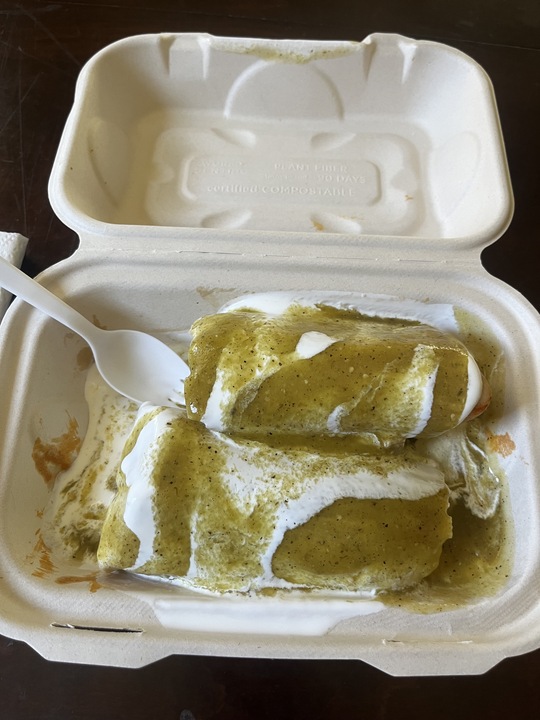
The pork tamales are delicious. They are $4.25 each when prepared with sour cream and salsa and I only buy two because they are extremely large. The bakers unwrap the tamales from their corn husk and place them in a compostable to-go box, then in a plastic bag with utensils and napkins.
There is discourse on whether or not Mexican tamales uphold tradition when prepared with sour cream and salsa. Don’t worry about it, do it anyway.
On the left side of the bakery, artificially flavored drinks also sold at Latin-American supermarkets are displayed; tamarindo, guava, coconut and single-serving milk. You can also find pre-packaged desserts like arroz con leche and flan. The prices of these items may be more economical at your local grocery store.
The real eye-catchers on the left side are the cakes. I’m not a cake enjoyer, but they look pretty and foamy, decorated with either fresh fruit or Oreo cookies.
My taste buds always crave the fresh juices found underneath the cakes in the refrigerator. La Mexicana Bakery sells 18-ounce carrot, beet and orange juices for $5 and they taste exactly how you would expect: sweet and refreshing.
In San Jose, there are many Mexican bakeries. La Mexicana sells short in flavor but rises in variety and champions with tamales and economical prices.
- La Mexicana Bakery
- 1170 E William St , San Jose
- 4:00 a.m. – 9 p.m.
- 7 days a week
- $1.00 – $7.25
- 3.9 stars out of 5



